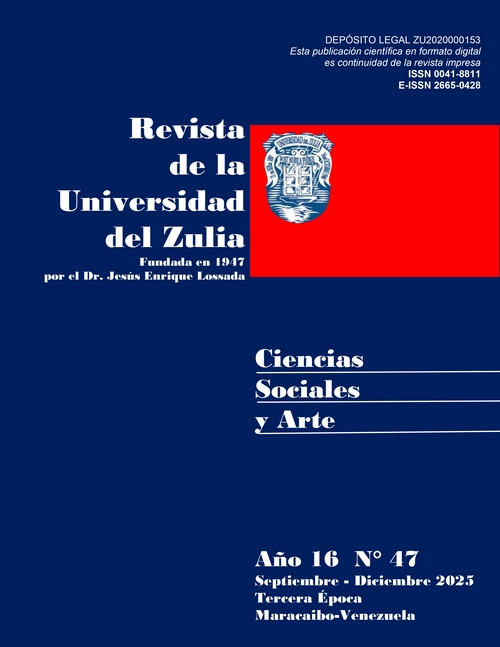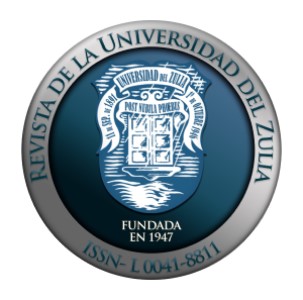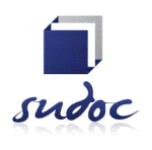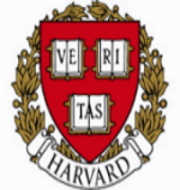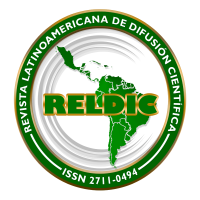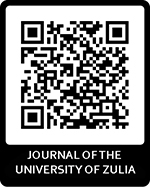Between Transhumanism and Religion: Is Religious Transhumanism Possible?
Abstract
Transhumanism holds that, through scientific and technological advancements, human beings can overcome biological limitations and the constraints of evolutionary processes without appealing to any transcendent entity. The relationship between transhumanism and religion has often been addressed from opposing standpoints, frequently presented as irreconcilable views concerning the transformation of the human condition. However, this polarized approach overlooks shared elements that reveal certain parallels between some religious traditions and the transhumanist imaginary, particularly in their transcendent aspirations. The present study aims to analyze the relationship between transhumanism and religion, as well as the possibility of a religious form of transhumanism. A qualitative methodology will be employed, using hermeneutics and exegesis as fundamental analytical tools. As a conclusion, it becomes evident that the relationship between transhumanism and religion is both ambiguous and complex. In the case of Christianity, such ambivalence is particularly pronounced: while certain groups, such as the Christian Transhumanist Association, seek to reconcile faith with technological enhancement, other voices within the Christian tradition emphasize significant doctrinal and ethical tensions, thus advocating a critical and cautious stance toward the promises of transhumanism.
Downloads
References
Alba, J. y Calero, M. (2023). Transhumanismo: una Perspectiva desde las diferencias biológicas basadas en la desigualdad de riqueza. Revista de Filosofía. Universidad del Zulia.
Barreto Calle, C. (2023). Fundamentación axiológica de la tecnociencia. En Zuna Serrano, K. (Coord.). Transhumanismo y realidades paralelas. Interpelaciones desde la filosofía y la teología. Editorial Abya-Yala. http://dspace.ups.edu.ec/handle/123456789/24589
Biblia Católica. https://www.bibliacatolica.com.br/es/
Bolaños, R. (2023). Vivas La paradoja del progreso tecno-científico contemporáneo. Un acercamiento desde Evandro Agazzi. En Zuna Serrano, K. (Coord.). Transhumanismo y realidades paralelas. Interpelaciones desde la filosofía y la teología. Editorial Abya-Yala. http://dspace.ups.edu.ec/handle/123456789/24589
Bostrom, N. (2005). Valores transhumanistas. Universidad de Oxford.
Bostrom, N. (2011). Una historia del pensamiento transhumanista. Argumentos de Razón Técnica, Nº 14. Universidad de Oxford.
Bostrom, N. (2016). Superinteligencia: caminos, peligros, estrategias. España: Editorial Teell.
Burdett, M. S. (2011). Contextualizing a Christian perspective on transcendence and human enhancement: Francis Bacon, N. F. Fedorov, and Pierre Teilhard de Chardin. In R. Cole-Turner (Ed.), Transhumanism and transcendence: Christian hope in an age of technological enhancement (pp. 19–35). Georgetown University Press.
Cole-turner, R. (2011). Transhumanism and transcendence: Christian hope in an age of technological enhancement. Washington, DC: Georgetown University Press.
Damour, F. (2019). Le transhumanisme est-il soluble dans la religion? Revue d'éthique et de théologie morale, 2(302), 11–27. https://doi.org/10.3917/retm.303.0011
Diéguez, A. (2017). Transhumanismo. La búsqueda tecnológica del mejoramiento huma-no. Barcelona: Herder Editorial
Donaldson, S., & Cole-Turner, R. (Eds.). (2018). Christian perspectives on transhumanism and the church (eBook). Palgrave Macmillan/Springer Nature.
Dubrovsky, D. (2013). “Global Future 2045. Convergent Technologies (NBICS) and Transhumanism Evolution”, Moscow, MBA Publications.
Echeverría, J. (2008). Filosofía de la práctica tecnocientífica y valores. https://bit.ly/3Y7vRjy
Echeverría, J. (2009). Ética y sociedades tecnológicas [Ethics and technological societies]. Isegoría, 41, 207-229. https://doi.org/10.3989/isegoria.2009.i41.671
Foyer, D. (2019). Le transhumanisme: une religion en émergence? Revue d'éthique et de théologie morale, 2(302), 73–86. https://doi.org/10.3917/retm.303.0073
Garcés Castellote, E. & Jiménez Rodríguez, M. (2016). Transhumanismo: cómo el mejoramiento humano cambiará el cuidado: un análisis desde la teoría general del déficit de autocuidado. Ene, 10 (3). http://scielo.isciii.es/scielo.php?script=sci_arttext&pid=S1988-348X2016000300005&lng=es&tlng=es
Gouw, A. M., Green, B. P., & Peters, T. (Eds.). (2022). Religious transhumanism and its critics (eBook). Lexington Books.
Harari, Y. N. (2016). Homo Deus: A brief history of tomorrow (eBook). Signal/McClelland & Stewart/Penguin Random House.
Hurtado, J. (2010). Metodología de la investigación: Guía para la comprensión holística de la ciencia. Quirón Ediciones.
Jonas, H. (1995). El principio de responsabilidad. Ensayo de una ética para la civilización tecnológica. Barcelona: Herder.
Kurzweil, R. (2012). La Singularidad está Cerca. Berlín: Lola Books.
Mafla, N. (2023). La religión en una sociedad transhumanista. En Zuna Serrano, K. (Coord.). Transhumanismo y realidades paralelas. Interpelaciones desde la filosofía y la teología. Editorial Abya-Yala. http://dspace.ups.edu.ec/handle/123456789/24589
Mainetti, J. (2014). Bioética Del Posthumanismo y El Mejoramiento Humano. Revista Red bioética / UNESCO.
Mehlman, M. (2009). Will direct evolution destroy humanity, and if so, what can we do about it? Saint Louis University Journal of Health Law & Policy
Meza-Rueda, J. (2023). “¿Vas a morir?” Crítica teológica a la idea de inmortalidad del transhumanismo. En Zuna Serrano, K. (Coord.). Transhumanismo y realidades paralelas. Interpelaciones desde la filosofía y la teología. Editorial Abya-Yala. http://dspace.ups.edu.ec/handle/123456789/24589
Noble, D. F. (1999). La religión de la tecnología. Barcelona: Paidós
Pavlov, A. (2019). Posthumanismo: superación y legado del posmodernismo, Voprosy Filosofii, Nº. 5. https://doi.org/10.31857/S004287440005053-3
Pearce, D. (2004). The hedonistic imperative.
Pérez, G. (2000). Investigación cualitativa. Retos e interrogantes: I Métodos. La Muralla.
Peters, T. (2011). Progress and Provolution. Will Transhumanism Leave Sin Behind? En R. Cole-Turner (Ed.), Transhumanism and transcendence: Christian hope in an age of technological enhancement (pp. 63-86). Washington, DC: Georgetown Uni-versity Press.
Quevedo Martín, D. (2023). La religión del transhumanismo: ¿Una nueva creencia para la humanidad? Éndoxa: Series Filosóficas, (52). https://revistas.uned.es/index.php/endoxa/article/view/29513/28610
Redding, M. (2022). Why Christian transhumanism. In A. M. Gouw, B. P. Green, & T. Peters (Eds.), Religious transhumanism and its critics (eBook, pp. 18–33). Lexington Books.
Ruedas, M., Rios, M. M., y Nieves, F., (2008). Hermenéutica: La roca que rompe el espejo. Investigación y Postgrado, 24(2), 181-201.
Sanlés Olivares, M. (2020). El transhumanismo en 100 preguntas. Nowtilus.
Terrones, A. (2018). Transhumanismo y ética de la responsabilidad Resonancias. Revista de Filosofía No. 4.
Zamora, C. (2023). Teología, mundos posibles y realidades paralelas. En Zuna Serrano, K. (Coord.). Transhumanismo y realidades paralelas. Interpelaciones desde la filosofía y la teología. Editorial Abya-Yala. http://dspace.ups.edu.ec/handle/123456789/24589
Zimmerman, M. E. (2008). “The singularity: a crucial phase in divine self-actualiza-tion?”. Cosmos and History: The Journal of Natural and Social Philosophy, 4 (1-2), pp. 347-370. https://www.cosmosandhistory.org/index.php/journal/article/view/107
Copyright (c) 2025 Johan Méndez Reyes, Diego Guajala Agila

This work is licensed under a Creative Commons Attribution-NonCommercial-ShareAlike 4.0 International License.
Copyright
The Revista de la Universidad del Zulia declares that it recognizes the rights of the authors of the original works published in it; these works are the intellectual property of their authors. The authors preserve their copyright and share without commercial purposes, according to the license adopted by the journal..
This work is under license:
Creative Commons Reconocimiento-NoComercial-CompartirIgual 4.0 Internacional (CC BY-NC-SA 4.0)


